an excerpt from
The Almond Tree
by Michelle Cohen Corasanti
PART ONE
1955
Chapter 1
Mama always said Amal was mischievous. It was a joke we shared as a family – that my sister, just a few years old and shaky on her pudgy legs, had more energy for life than me and my younger brother Abbas combined. So when I went to check on her and she wasn’t in her crib, I felt a fear in my heart that gripped me and would not let go.
It was summer and the whole house breathed slowly from the heat. I stood alone in her room, hoping the quiet would tell me where she’d stumbled off to. A white curtain caught a breeze. The window was open – wide open. I rushed to the ledge, praying that when I looked over she wouldn’t be there, she wouldn’t be hurt. I was afraid to look, but I did anyway because not knowing was worse. Please God, please God, please God…
There was nothing below but Mama’s garden: colourful flowers moving in that same wind.
Downstairs, the air was filled with delicious smells, the big table laden with yummy foods. Baba and I loved sweets, so Mama was making a whole lot of them for our holiday party tonight.
‘Where’s Amal?’ I stuck a date cookie in each of my pockets when her back was turned. One for me and the other for Abbas.
‘Napping.’ Mama poured the syrup onto the baklava.
‘No, Mama, she’s not in her crib.’
‘Then where is she?’ Mama put the hot pan in the sink and cooled it with water that turned to steam.
‘Maybe she’s hiding?’
Mama’s black robes brushed across me as she rushed to the stairs. I followed closely, keeping quiet, ready to earn the treats in my pocket by finding her first.
‘I need help.’ Abbas stood at the top of the stairs with his shirt unbuttoned.
I gave him a dirty look. I had to make him understand that I was helping Mama with a serious problem.
Abbas and I followed Mama into her and Baba’s room. Amal wasn’t under their big bed. I pulled open the curtain that covered the place where they kept their clothes, expecting to find Amal crouching with a big smile, but she wasn’t there. I could tell Mama was getting really scared. Her dark eyes flashed in a way that made me scared too.
‘Don’t worry Mama,’ Abbas said. ‘Ichmad and I will help you find her.’
Mama put her fingers to her lips to tell Abbas and me not to speak as we crossed the hall to our younger brothers’ room. They were still sleeping, so she went in on tiptoes and motioned for us to stay outside. She knew how to be quieter than Abbas and me. But Amal was not there.
Abbas looked at me with scared eyes and I patted him on the back.
Downstairs, Mama called to Amal, over and over. She ransacked the living and dining rooms, ruining all the work she had put in for the holiday dinner with Uncle Kamal’s family.
When Mama ran to the sunroom, Abbas and I followed. The door to the courtyard was open. Mama gasped.
From the big window we spotted Amal running down the meadow towards the field in her nightgown.
Mama was in the courtyard in seconds. She cut right through her garden, crushing her roses, the thorns tearing at her robe. Abbas and I were right behind her.
‘Amal!’ Mama screamed. ‘Stop!’ My sides hurt from running, but I kept going. Mama stopped so fast at ‘the sign’ that Abbas and I ran right into her. Amal was in the field. I couldn’t breathe.
‘Stop!’ Mama screamed. ‘Don’t move!’
Amal was chasing a big red butterfly, her black curly hair bouncing. She turned and looked at us. ‘I get it,’ she chuckled, pointing at the butterfly.
‘No, Amal!’ Mama used her strictest voice. ‘Don’t move.’
Amal stood completely still and Mama blew air out of her mouth.
Abbas dropped to his knees, relieved. We were never, ever, supposed to go past the sign. That was the devil’s field.
The pretty butterfly landed about four metres in front of Amal.
‘No!’ Mama screamed.
Abbas and I looked up.
Amal made mischievous eyes at Mama and then ran towards the butterfly.
The next part was like slow motion. Like someone threw her up in the air. Smoke and fire were under her and the smile flew away. The sound hit us – really hit us – and knocked us back. And when I looked to where she was, she was gone. Just gone. I couldn’t hear anything.
And then the screams came. It was Mama’s voice, then Baba’s from somewhere far behind us. Then I realised that Amal wasn’t gone. I could see something. I could see her arm. It was her arm, but her body wasn’t attached to it anymore. I wiped my eyes. Amal was torn up like her doll after our watchdog ripped it apart. I opened my mouth and screamed so loud I felt like I was going to split in two.
Baba and Uncle Kamal ran up, panting, to the sign. Mama didn’t look at them, but when they got there she began to whimper, ‘My baby, my baby …’
Then Baba saw Amal, out there past the sign – the sign that said Closed Area. He lunged towards her, tears flooding down his face. But Uncle Kamal grabbed him hard with both hands. ‘No …’ He held on.
Baba tried to shake him off, but Uncle Kamal hung on. Fighting, Baba turned on his brother, screaming, ‘I can’t leave her!’
‘It’s too late.’ Uncle Kamal’s voice was strong.
I told Baba, ‘I know where they buried the mines.’
He didn’t look at me, but he said, ‘Direct me in, Ichmad.’
‘You’re going to put your life in the hands of a child?’ Uncle Kamal’s face looked like he was biting into a lemon.
‘He’s no ordinary seven-year-old,’ Baba said.
I took a step towards the men, leaving Abbas with Mama. They were both crying. ‘They planted them with their hands and I made a map.’
‘Go get it,’ Baba said, followed by something else, but I couldn’t understand him because he turned away towards the devil’s field – and Amal.
So I ran as fast as I could, grabbed the map from its hiding place on the veranda, swung around for Baba’s walking stick, and ran back to my family. Mama always said she didn’t want me to run when I was holding Baba’s stick because I could get hurt, but this was an emergency.
Baba took the stick and tapped the ground while I tried to get the wind back in me.
‘Go straight from the sign,’ I said. My tears blinded me, the salt stinging, but I wouldn’t look away.
Baba tapped the ground in front of him before every single step and when he was about three metres out, he stopped. Amal’s head was approximately a metre in front of him. Her curly hair was gone. White stuff stuck out in places where the skin was burned off. His arms weren’t long enough to reach it, so he crouched and tried again. Mama gasped. I wished he’d use the stick, but I was afraid to say it to him, in case he didn’t want to treat Amal that way.
‘Come back,’ Uncle Kamal pleaded. ‘It’s too dangerous.’
‘The children,’ Mama cried out. Baba almost fell over, but caught himself. ‘They’re alone in the house.’
‘I’ll go stay with them.’ Uncle Kamal turned away and I was glad because he was making things even worse.
‘Don’t bring them here!’ Baba called to him. ‘They can’t see Amal like this. And don’t let Nadia come down here either.’
‘Nadia!’ Mama sounded like she had just heard the name of her eldest daughter for the first time. ‘Nadia is at your house, Kamal, with your children.’
Uncle Kamal nodded and continued on.
Mama was on the ground next to Abbas. Tears streamed down her face. Like someone cursed and frozen in place, Abbas stared at what was left of Amal.
‘Which way now, Ichmad?’ Baba asked.
According to my map, there was a mine approximately two metres away from Amal’s head. The sun was hot, but I felt cold. Please God, let my map be accurate. What I knew for sure was that there was no pattern because I always looked for patterns and these were random, so no one could figure them out without a map.
‘Walk a metre to the left,’ I said, ‘and reach again.’ Without even knowing it, I had been holding my breath. When Baba lifted Amal’s head the air spilled out of me. He took off his kaffiyah and wrapped it around her little head, which was pretty much destroyed.
Baba reached for her arm, but it was too far away. It was hard to tell if her hand was still attached.
According to my map, there was another landmine between him and her arm, and it was up to me to direct him around it. He did exactly what I told him because he trusted me. I got him close and he gently grabbed her arm-bone and wrapped it in his kaffiyah. All that was left was her middle, and it was the furthest away.
‘Don’t step forward. There’s a mine. Step to your left.’
Baba cuddled Amal close to his chest. Before he stepped, he tapped the ground. I guided him the whole way; it was at least twelve metres. Afterwards, I had to guide him back.
‘From the sign, straight out, there aren’t any mines,’ I said. ‘But there’re two in between you and that straight line.’
I guided him forward, then sideways. Sweat dripped down my face, and when I wiped it with my hand, there was blood. I knew it was Amal’s blood. I wiped it again and again, but it wouldn’t come off.
Strands of Baba’s black hair lifted off his face in a gust. His white kaffiyah, no longer covering it, was soaked with blood. Red blossomed down his white robe. He held Amal in his arms the way he did when she fell asleep on his lap and he carried her upstairs. Baba looked like an angel from a story bringing Amal back from the field. His broad shoulders were heaving, his eyelashes wet.
Mama was still on the ground, crying. Abbas held her, but had no more tears. He was like a little man, watching over her. ‘Baba will put her back together,’ he assured Mama. ‘He can fix anything.’
‘Baba will take care of her.’ I put my hand on Abbas’ shoulder.
Baba knelt next to Mama on the ground with his shoulders by his ears and rocked Amal gently. Mama leaned into him.
‘Don’t be scared,’ Baba told Amal. ‘God will protect you.’ We remained like that, comforting Amal, for a long time.
‘Curfew begins in five minutes,’ a soldier announced through his megaphone from his military Jeep. ‘Anyone found outside will be arrested or shot.’
Baba said it was too late to get a permit to bury Amal, so we brought her back home.
Chapter 2
Abbas and I heard the cries before Baba. He was focused on inspecting our oranges. He was like that. His family had owned the groves for generations and he said it was in his blood.
‘Baba.’ I tugged on his robe and broke his trance. He dropped the oranges in his arms and ran towards the cries. Abbas and I followed closely.
‘Abu Ichmad!’ Mama’s screams echoed off the trees. When I was born, they had changed their names to Abu Ichmad and Um Ichmad so as to include my name: that of their first son. It was the tradition of our people. Mama ran towards us with our baby sister Sara in her arms. ‘Come home!’ Mama gasped for air. ‘They’re at the house.’
I got really scared. For the last two years, when they thought Abbas and I were sleeping, my parents talked about them coming to take our land. The first time I heard them was the night Amal died. They fought because Mama wanted to bury Amal on our land so she could stay close to us and not be afraid, but Baba said no, that they’d come and take our land and then we’d either have to dig her up or leave her with them.
Baba took baby Sara from Mama’s arms and we ran back to our house.
More than a dozen soldiers were fencing our land and home with barbed wire. My sister Nadia was kneeling under our olive tree holding my middle brothers Fadi and Hani while they cried. She was younger than me and Abbas, but older than the others. Mama always said she’d make a good mother because she was very nurturing.
‘Can I help you?’ Baba asked a soldier, between gulps of air.
‘Mahmud Hamid?’
‘That’s me,’ Baba said.
The soldier handed Baba a document.
Baba’s face went white like milk. He started to shake his head. Soldiers with rifles, steel helmets, green military fatigues and heavy black boots surrounded him.
Mama pulled Abbas and me close, and I felt her heart beat through her robe.
‘You have thirty minutes to pack your possessions,’ the pimply-faced soldier said.
‘Please,’ Baba said. ‘This is our home.’
‘You heard me,’ Pimply-face said. ‘Now!’
‘Stay here with the little ones,’ Baba told Mama. She burst into tears.
‘Keep it down,’ Pimply-face said.
Abbas and I helped Baba carry out all one hundred and four of the portraits he had drawn over the last fifteen years; his art books of the great masters: Monet, Van Gogh, Picasso, Rembrandt; the money he kept in his pillow case; the oud his father made him; the silver tea set Mama’s parents gave her; our dishes, cutlery, pots and pans; clothing and Mama’s wedding dress.
‘Time’s up,’ the soldier said. ‘We’re relocating you.’
‘An adventure.’ Baba’s eyes were wet and shiny as he put his arm around Mama, who was still sobbing.
We loaded the wagon with our possessions. The soldiers opened a hole in the barbed-wire fence so we could get out, and Baba led the horse as we followed the soldiers up the hill. Villagers disappeared as we passed them. I looked back; they had completely fenced in our house and orange groves with barbed wire, and I could see them beyond at Uncle Kamal’s, doing the same. They hammered in a sign: Keep Out! Closed Area. It was the same wording that was in front of the field of landmines where my little sister Amal had died.
I kept my arm around Abbas the whole time because he was crying hard, like Mama. I wept too. Baba didn’t deserve that. He was a good person, worth ten of them. More: a hundred; a thousand. All of them.
They led us up the hill through thickets that cut into my legs until we finally arrived at a mud-brick hut that was smaller than our chicken coop. The garden in front was overrun with weeds, and that must have made Mama feel bad because she hated weeds. The shutters were dusty and closed. The soldier cut the lock with bolt cutters and pushed the tin door open. There was only one room, with a dirt floor. We unloaded our belongings and the soldiers left with our horse and cart.
Inside the house there were rush mats piled up in the corner. Goat skins were folded on top of them. There was a kettle in the hearth, dishes in the cabinet, clothes in the closet. Everything was covered in a thick coat of dust.
On the wall was a portrait of a husband and wife and their six children, smiling. They were in our courtyard in front of Mama’s garden.
‘You drew them,’ I said to Baba.
‘That was Abu Ali and his family,’ he said.
‘Where are they now?’
‘With my mother and brothers and Mama’s family,’ he said. ‘God willing, one day they’ll come back, but, until then, we’ll have to pack their belongings in our crate.’
‘Who’s this?’ I pointed to the portrait of a boy my age with a thick red scar across his forehead.
‘That’s Ali,’ Baba said. ‘He loved horses. The first time he rode one, the horse bucked and Ali fell to the ground. He was unconscious for days, but when he woke, he went right back on that horse.’
Baba, Abbas and I organised our birthday portraits on the back wall in a bar graph. Across the top, Baba wrote the years, starting with 1948 until the present year, 1957. Mine was the only portrait in 1948. We continued with every year, adding the new children as they came. I was at the top followed by Abbas in 1949, Nadia in 1950, Fadi in 1951, Hani in 1953, Amal in 1954 and Sara in 1955. But there were only two portraits of Amal.
On the side walls, Baba, Abbas and I arranged the portraits of our family members who we knew were dead: Baba’s father and grandparents. Next to those, we hung up our family in exile: Baba’s mother embracing her ten children in front of the magnificent garden that Mama had built at Baba’s family’s house before they were married, when her parents were migrant workers in Baba’s family’s groves. When Baba came home from art school in Nazareth and saw Mama tending her garden, he had decided to marry her. Baba hung the portraits of himself and his brothers – watching their oranges loaded onto a ship at the port of Haifa, eating at a restaurant in Acre, in the market in Jerusalem, tasting the oranges of Jaffa, vacationing at a coastal resort in Gaza.
The front wall we reserved for immediate family. Baba had drawn many self-portraits while he was in art school in Nazareth. Plus there was: us having a picnic in our orange grove, my first day of school, Abbas and me at the village square looking into the box holes of the moving picture show while Abu Hussein turned the handle, and Mama in her garden – that one Baba had painted with water colours, unlike the others, which he had drawn with charcoal.
‘Where are our bedrooms?’ Abbas scanned the room.
‘We’re lucky to get a home with such a beautiful view,’ Baba said. ‘Ichmad, take him outside to see.’ Baba handed me the telescope I’d made from two magnifying glasses and a cardboard tube. It was the same one I’d used to watch the soldiers plant the landmines in the devil’s field. Behind the house, Abbas and I climbed a beautiful almond tree that overlooked the village.
Through my telescope, we took turns watching the new people, dressed in sleeveless shirts and shorts, already picking oranges from our trees. From our old bedroom window, Abbas and I had watched their land expand as they swallowed up our village. They brought in strange trees and planted them in the swamp. Right before our eyes, the trees grew fat from drinking the fetid juices. The swamp disappeared and in its place rich black topsoil appeared.
I saw their swimming pool. I moved my telescope to the left and could see across the Jordanian border. Thousands of tents with the letters UN littered the otherwise empty desert. I handed the telescope to Abbas so he could see too. One day I hoped to get a stronger lens so that I could see the refugees’ faces. But I’d have to wait. For the past nine years, Baba had been unable to sell his oranges outside the village, so our market shrank from the entire Middle East and Europe to 5,024 now-poor villagers. We were once very rich, but not anymore. Baba would have to find a job, and those were hard to come by. I wondered if that would make him worry.
***
In the two years we had lived in our new house with the almond tree, Abbas and I had spent many hours in the tree watching the moshav. There we’d seen things we’d never seen before. Boys and girls, older and younger than me, held hands and formed circles and danced and sang together, their arms and legs naked. They had electricity and green lawns, and yards with swing sets and slides. And they had a swimming pool that boys and girls and men and women of all ages swam in, wearing what looked like their underwear.
Villagers complained because the new people diverted the water from our village by digging deeper wells. We weren’t allowed to dig deeper wells like them. We were angry that while we had barely enough water to drink, the new people were swimming in it. But their swimming pool fascinated me. From our almond tree, I would watch the diver on the board and think how he had potential energy while he was on the platform and how that energy was converted to kinetic energy during the dive. I knew that the heat and wave energy of the swimming pool couldn’t throw the diver back onto the board, and I tried to think what physical laws prevented it. The waves intrigued me in the same way that the children splashing among them fascinated Abbas.
I knew from a young age that I wasn’t like the other boys in my village. Abbas was very social and had many friends. When they gathered at our house, they would speak of their hero Jamal Abdul Nasser, the President of Egypt, who had stood up to Israel in the 1956 Suez Canal Crisis and was championing Arab nationalism and the Palestinian cause. I idolised Albert Einstein.
As the Israelis controlled our curriculum, they always supplied us with ample books on the accomplishments of famous Jews. I read every book I could find on Einstein and after I fully understood the brilliance of his equation, E=mc2, I was amazed at how it came to him. I wondered if he really did see a man falling from a building or if he had just imagined it while sitting in the patent office where he worked.
***
Today was the day I was going to measure how tall the almond tree was. The day before, I had planted a stick in the ground and cut it off at my eye level. Lying on the ground with my feet against the standing stick, I could see the treetop over the end of it. The stick and I made a right-angled triangle. I was the base, the stick was the perpendicular and the line of sight was the hypotenuse of the triangle. Before I could calculate the measurements, I heard footsteps.
‘Son,’ Baba called. ‘Are you alright?’
I got up. Baba must be home from his job building houses for the Jewish settlers. None of the other fathers worked in construction, partly because they refused to build houses for the Jews on razed Palestinian villages and partly because of the Israelis’ policy of ‘Hebrew Labour’: Jews only hired Jews. Many of the older boys at school said bad things about Baba working for the Jews.
‘Join me in the courtyard. I heard a few good jokes at work today,’ Baba said, before turning and walking back towards the front of the house.
I climbed back up the almond tree and looked at the barren land between our village and the moshav. Only five years earlier, it had been filled with olive trees. Now it was filled with landmines. Landmines like the one that killed my baby sister, Amal.
‘Ichmad, come down,’ Baba called.
I climbed down the branches.
He pulled a sugar doughnut out of the crumpled brown paper bag in his hand. ‘Gadi from work gave it to me.’ He smiled. ‘I’ve saved it all day for you.’ Red gel oozed from the side.
I squinted at it. ‘Is that poison leaking out?’
‘Why, because he’s Jewish? Gadi’s my friend. There are all kinds of Israelis.’
My stomach contracted. ‘Everyone says the Israelis want to see us dead.’
‘When I sprained my ankle at work, it was Gadi who drove me home. He lost a half-day’s pay to help me.’ He extended the doughnut towards my mouth. ‘His wife made it.’
I crossed my arms. ‘No thanks.’
Baba shrugged and took a bite. His eyes closed. He chewed slowly. Then he licked the particles of sugar that had gathered on his upper lip. Opening one eye just a little, he glanced down at me. Then he took another bite, savouring it in the same way.
My stomach growled and he laughed. Once again he offered it to me, saying, ‘One cannot live on anger, my son.’
I opened my mouth and allowed him to feed it to me. It was delicious. An image of Amal rose, unbidden, in my mind, and suddenly I was overwhelmed with guilt at the flavour in my mouth. But…I kept eating.
Chapter 3
A brass tray of coloured tea glasses scattered the sunlight that streamed through the open window like a prism. Blues, golds, greens and reds bounced onto a group of old men in battered cloaks and white kaffiyahs secured by black rope. The men of the Abu Ibrahim clan sat cross-legged on floor pillows placed carefully around the low table now holding their steaming drinks. They had once owned all the olive groves in our village. Every Saturday they met here, only occasionally exchanging a word or greeting across the crowded room. They came to listen to the ‘Star of the East’, Um Kalthoum, on the tea house’s radio.
Abbas and I waited all week to hear her sing. Um Kalthoum was known for her contralto vocal range, her ability to produce approximately 14,000 vibrations per second with her vocal chords, her ability to sing every single Arabic scale, and the high importance she placed on interpreting the underlying meaning of her songs. Many of her songs lasted hours. Because of her great talent, men flocked to the only radio in the village to hear her.
Teacher Mohammad wiped the sweat that trickled down his nose and dangled there, about to drop onto the playing board. We both knew there was no way he could win, but he never quit and I admired that trait in him. The cluster of men gathered around the backgammon board teased, ‘Well, Teacher Mohammad, it appears that your student has beaten you again!’ ‘Concede already! Give someone else a chance to take on the village champion.’
‘A man never quits until it is over.’ Teacher Mohammad bore a chequer off.
I rolled a 6-6 and lifted my last chequer from the board. From the corner of my eye I saw Abbas watching me.
A smile blew across Baba’s face and he quickly took a sip of his mint tea – he never liked to gloat. Abbas didn’t care. He didn’t try to conceal his smile.
Teacher Mohammad extended a sweaty hand to me. ‘I knew I was in trouble when you started off with that 5-6.’ His handshake was firm. After my initial high roll, I’d used the running strategy to beat him.
‘My father taught me everything I know.’ I looked at Baba.
‘The teacher is important, but it’s the speed at which your brain fires that makes you the champion at only eleven years of age.’ Teacher Mohammad smiled.
‘Almost twelve!’ I said. ‘Tomorrow.’
‘Give him five minutes,’ Baba said to the men who’d gathered around us in the hope of playing me. ‘He hasn’t even had his tea yet.’
Baba’s words warmed my insides. I loved how proud he was of me.
‘Great game, Ichmad.’ Abbas patted me on the shoulder.
Men reclined on floor cushions, clustered around low trestle tables set up in lines down the length of the room on top of overlapping carpets. Um Kalthoum’s voice overpowered the medley of voices from the men.
The attendant emerged from the back room with a pipe in each hand – long, coloured stems hanging over his arms, charcoal glowing on the tobacco – and set them in front of the remaining men of the Abu Ibrahim group. They thickened the air with sweet-smelling smoke, which mixed with the smoke from the oil lamps hanging from ceiling rafters. One of them told a story about how he had bent down and ripped his trousers open. Abbas and I laughed with them.
The Mukhtar entered, raising his arms at the door as if to embrace the entire tea house at once. Even though the military government wouldn’t recognise the Mukhtar as our elected leader, he was, and men with disputes came to him. Every day he held court in the tea house. The Mukhtar was making his way to his spot in the back, but stopped to clap Baba on the back. ‘May God bring peace upon you and your sons.’ He bowed before us and shook Baba’s hand.
‘May God bring peace upon you as well,’ Baba said. ‘Have you heard that Ichmad is being promoted by three grades in the coming year?’
The Mukhtar smiled. ‘He will bring great pride to our people one day.’
As men entered, they came over to Baba to greet him and introduce themselves to Abbas and me. When I first started coming with Baba, I felt strange because this was the domain of adult men who looked at me strangely. Only a few had wanted to play me at backgammon; but after I proved myself, I became a welcome and honoured guest. I earned my position. Now I was sort of a legend, the youngest backgammon champion in the history of my village.
When Abbas heard of my victories, he began to accompany us. He wanted to learn to play like me. While I played, he spent much of his time socialising with the men. Everyone always liked Abbas; even from an early age he had charisma.
On my right was a group of men in their twenties, dressed in Western clothes: trousers with zippers and button-down shirts. They read newspapers, smoked cigarettes and drank Arabic coffee. Many of them were still single. Abbas and I would be with them one day.
One of them pushed his glasses up with his index finger. ‘How am I supposed to get into medical school here?’ he said.
‘You’ll figure out something,’ the sandal-maker’s son said.
‘Easy for you to say,’ the bespectacled man said. ‘You have a trade to go into.’
‘At least you’re not the third son. I can’t even marry,’ another said. ‘My father has no land to give me anymore. Where would my wife and I live? Both my brothers and their families already live with my parents and me in our one-room house. Now, Jerusalem…’
The radio’s battery went flat right in the middle of Um Kalthoum’s song, Whom Should I Go To? Villagers gasped and voices rose. The owner scurried to the large radio console. He turned the knobs, but there was no sound.
‘Please, forgive me,’ he said. ‘The battery needs to be recharged. There’s nothing I can do.’
Men started to get up to leave.
‘Please, wait.’ The owner made his way over to Baba. ‘Would you mind playing a few songs?’
Baba bowed slightly. ‘It would be my pleasure.’
‘Gentlemen, please wait – Abu Ichmad has agreed to entertain us with his wonderful music.’
Men returned to their spots and Baba played his oud and sang the songs of Abdel Halim Hafez, Mohammad Abdel Wahab and Farid al-Atrash. Some sang along with him, others closed their eyes and listened, while still others smoked their water-pipes and sipped tea. Baba sang for over an hour before he put down his oud.
‘Don’t stop!’ they cried.
Baba picked up his oud and started again. He hated to disappoint them, but as dinner approached, he had no choice.
‘My wife will be upset if her dinner gets cold,’ he said. ‘Everyone, please join us tomorrow night after dinner to celebrate Ichmad’s twelfth birthday.’ As we left, villagers cried out thanks and shook Baba’s hand.
Even this late in the day, the village square still bustled with activity. In the open-air market at the centre, pedlars lined the ground in front of them with clay pots filled with combs; mirrors; amulets to keep away evil spirits; buttons; threads; needles and pins; bolts of brightly coloured fabrics; stacks of new and second-hand clothes and shoes; piles of books and magazines; pots and pans; knives and scissors; field tools. Shepherds stood with sheep and goats. Cages held chickens. Apricots, oranges, apples, avocados and pomegranates lay on tarps next to potatoes, squash, aubergines and onions. There were pickled vegetables in glass jars; clay pots filled with olives, pistachios, and sunflower seeds. A man behind a big wooden camera, half hidden under black fabric, snapped a picture of a family in front of the mosque.
We passed a man selling the paraffin that we used to fuel our lanterns and to cook with, then the herbalist, whose fragrant wares disguised the petroleum smell of his neighbour’s. There were dandelions for diabetes, constipation, liver and skin conditions; chamomile for indigestion and inflammatory disorders; thyme for respiratory problems and eucalyptus for coughs. Across the way, we could see women gathered at the communal ovens chatting while their dough baked.
We passed the now-vacant Khan, the two-room hostel where visitors once stayed when they came to sell their goods in our village, or for festivals, or during harvest season, or on their way to Amman, Beirut or Cairo. Baba told me that when it was open, travellers came on camels and horses, but that was before there were checkpoints and curfews.
The roar of military Jeeps speeding into our village silenced the chatter. Rocks flew through the air and pummelled them; engines screeched to a halt. My friend, Muhammad Ibn Abd, from my class, ran past us, through the square, with two steel-helmeted soldiers with face protectors and Uzis on his heels. They threw him down on a tarp of tomatoes and drove the stocks of their Uzis into his skull. Abbas and I tried to run to him, but Baba held us back.
‘Don’t get involved,’ he said and pulled us towards our house. Abbas’ fists were clenched. Anger bubbled inside of me too. Baba silenced us with a glance. Not in front of the soldiers, or the other villagers.
We made our way towards the hill where we lived, past clusters of homes like ours. I knew each of the clans that lived in these family groups, as the fathers would split their land among their sons, generation after generation, so the clan stayed together. My family’s land was gone. Most of my father’s brothers had been forced into refugee camps across the border in Jordan twelve years ago, on the day of my birth. Now, my brothers and cousins and I would have no orange groves, no houses of our own. As we passed the last of the mud-brick homes, my head pounded with rage.
‘How could you stop me?’ The words burst from my mouth as soon as we were alone.
Baba took a few more steps, then stopped. ‘It would accomplish nothing but to get you into trouble.’
‘We need to fight back. They won’t stop on their own.’
‘Ichmad’s right,’ Abbas chimed in.
Baba silenced us with his look.
We passed a pile of rubble where a house used to be. In its place was a low tent. Three little children held onto their mother’s robe while she cooked over an open fire. When I looked over at her, she lowered her head, lifted the pan, and ducked into the tent.
‘For twelve years, I’ve watched many soldiers enter our village,’ Baba said. ‘Their hearts are as different from each other’s as they are from ours. They are bad, good, scared, greedy, moral, immoral, kind, mean – they’re human beings like us. Who knows what they might be if they were not soldiers? This is politics.’
I gritted my teeth together so hard my jaw hurt. Baba didn’t see things the way Abbas and I did. Uncollected rubbish, donkey dung and flies littered the path. We paid taxes but received no services because they classified us as a village. They stole the majority of our land and left us with one half of a square kilometre for over six thousand Palestinians.
‘People don’t treat other human beings the way they treat us,’ I said.
‘Ichmad’s right,’ Abbas said.
‘That’s what saddens me.’ Baba shook his head. ‘Throughout history the conquerors have always treated the conquered this way. The bad ones need to believe we’re inferior to justify the way they treat us. If they only could realise that we’re all the same.’
I couldn’t listen to him anymore and ran towards home, shouting, ‘I hate them. I wish they’d just go back to where they came from and leave us alone!’ Abbas followed on my heels.
Baba called after us, ‘One day you’ll understand. It’s not as simple as you make it out to be. We must always remain decent.’
He had no idea what he was talking about.
The flower scent reached me about halfway up the hill. I was glad we lived only five minutes from the square. I wasn’t like Abbas, outside playing games with friends and running all the time; I was a reader, a thinker, and this running fast made my lungs burn. Abbas could run all day and he’d never even perspire. I couldn’t begin to compete with his athleticism.
Bougainvillea in shades of purple and fuchsia climbed the trellises that Baba, Abbas and I had made to run up the outside of the little house. Mama and Nadia were taking more trays of sweets to their storage place under the tarp near the almond tree. They had been baking all week.
‘Go inside,’ Baba said as he trudged up behind Abbas and me. ‘They’re starting curfew earlier today.’
***
Sleep could not find me. My anger made me invisible and when it visited the rest of my family, it overlooked me. So I was the only one who heard the noises outside. Footsteps. At first I thought it was the wind in the almond tree, but as they drew louder, closer, I knew it was not. No one was ever out after dark except soldiers. We could be shot if we left our homes for any reason. It must be soldiers. I lay very still listening for the pattern, trying to discern how many feet. It was one person, and not in the heavy boots of the soldiers. It must be a thief. Our home was so small that, in order for everyone to lie down, we had to place many things out of doors. The food for my birthday party was outside now. Someone was creeping up on it. I stepped over my family’s sleeping bodies, afraid to be seen outside, but more afraid to let someone steal the food Mama and Nadia had worked so hard to prepare, and that Baba had saved all year to buy.
The chill caught me off guard and I wrapped my arms around my chest as I picked my way along, barefooted. There was no moon. I didn’t see him. A sweaty hand clamped over my mouth. Cold metal pressed against the back of my neck – a gun barrel.
‘Keep your voice down,’ he said.
He spoke in my village’s dialect.
‘Tell me your full name,’ he demanded in a whisper.
I closed my eyes and envisioned the tombstones in our village cemetery.
‘Ichmad Mahmud Mohammad Othman Omar Ali Hussein Hamid,’ I squeaked, wishing to sound manly, but sounding like a little girl.
‘I’ll cut your tongue out if I catch you lying.’ He spun me around and jerked me backwards. ‘What’s a rich boy like you doing in my house?’
The scar on his forehead was unmistakable. Ali.
‘The Israelis, they took our land.’
He shook me so violently I feared I might vomit.
‘Where’s your father?’ He jerked me further backwards. I grabbed onto his arms with all my might and thought of my family asleep on their rush mats in our house, Ali’s home.
‘He’s sleeping, doctor,’ I said, adding the title as a show of respect so that he might not slit my throat there, next to the birthday pastries.
He thrust his face into mine. What if he asked what Baba does?
‘Right this very minute, my comrades are burying arms throughout this village.’
‘Please, doctor,’ I said. ‘I could pay attention much better if I were vertical.’
He slammed me backward before he yanked me upright. I looked at the open bag next to his foot. It was filled with weapons. I looked away, but it was too late.
‘See this gun.’ He shoved the pistol in my face. ‘If anything happens to me or my weapons, my comrades will chop your family to pieces.’
I nodded, mute to this horrible vision.
‘Where’s the safest place to hide them?’ He glanced towards the house. ‘And remember, your family’s lives depend on it. Don’t even tell your father.’
‘I would never,’ I said. ‘He doesn’t understand. We have no choice. Hide them in the dirt behind the almond tree.’
He walked me over with the pistol against the back of my neck.
‘There’s no need for the gun.’ I lifted my hands away from my sides. ‘I’m quite willing to help. We all want freedom for ourselves and our brothers in the camps.’
‘What’s under the tarp?’ he asked.
‘Food for my celebration.’
‘Celebration?’
‘My twelfth birthday.’ I could not feel the gun against my skin anymore.
‘Have you a shovel?’
He followed me.
***
When we finished, Ali stepped into the trench and laid the bag of arms down the way a mother would place her baby in his bassinet. In silence we scooped dirt from the mound beside the trench until we covered the bag.
Ali grabbed a handful of date cookies from under the tarp and stuffed them into his pockets and mouth. ‘Palestinians trained to use these weapons will come.’ White particles sprayed from his mouth. ‘You’ll protect them until the time is right, or your family will be killed.’
‘Of course.’ I couldn’t believe how lucky I was to become a hero of my people.
I started to return to my rush mat inside the house, but Ali grabbed my shoulder. ‘If you tell anyone, I’ll kill you all.’
I turned to face him. ‘You don’t understand. I want to help.’
‘Israel has built a house of glass, and we’ll shatter it.’ He cut the air with his fist then handed me the shovel.
There was a skip in my step as I returned to my house. I lay again in the darkness next to Abbas, my body and mind charged with the thrill of what I’d participated in. Until it occurred to me – what if the Israelis found out? They’d imprison me. They’d bulldoze our house. My family would have to live in a tent. Or maybe they’d exile us. I wanted to talk to Baba or even Abbas, but I knew Ali and his comrades would kill us. I was caught between the devil and the fires of hell. I had to move the weapons. I’d tell Ali they weren’t secure. I couldn’t dig them up now. Where would I put them? During the day, someone could see me. I’d have to wait until curfew. The whole village would be at our house this evening. What if the soldiers came? What if my family noticed, or someone from the party? The village cemetery. New plots were dug there almost daily. I’d go after school to scout out a place.
… Continued…
Download the entire book now to continue reading on Kindle!

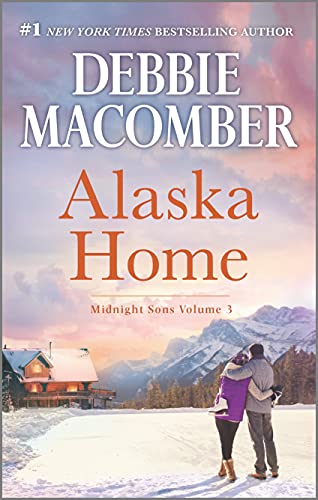
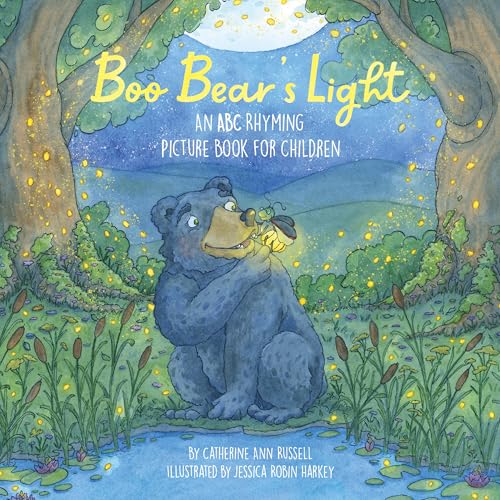
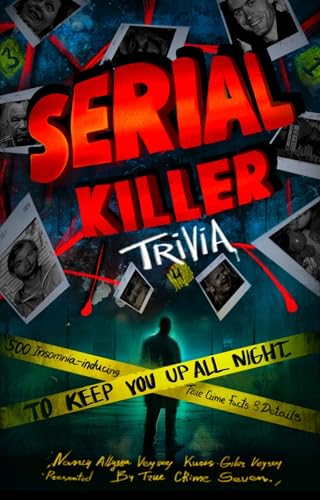
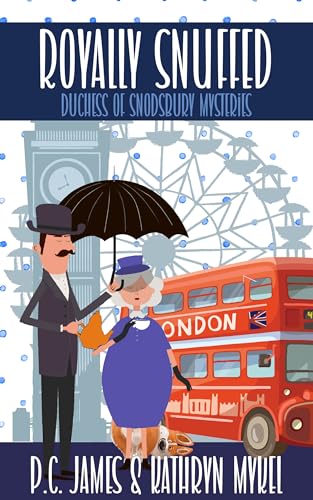
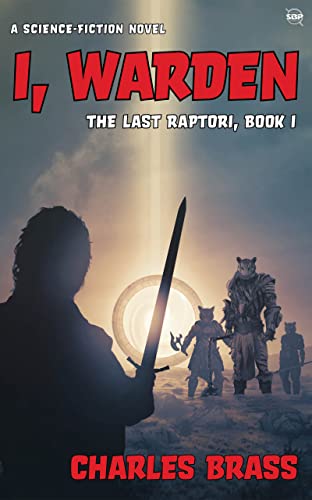
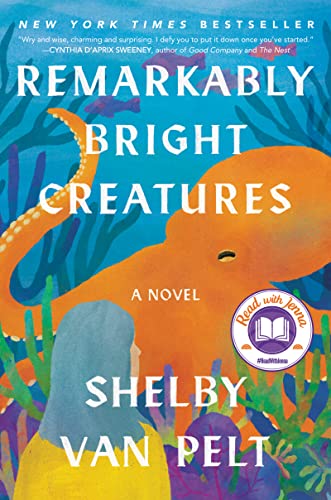

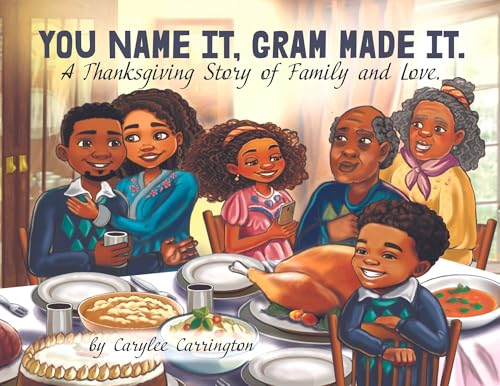
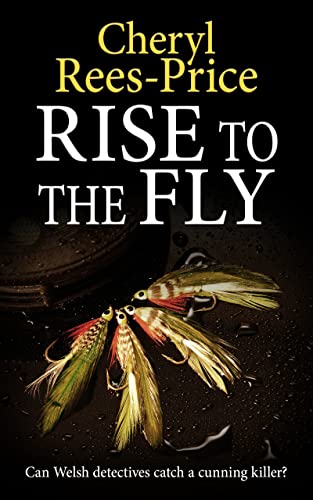
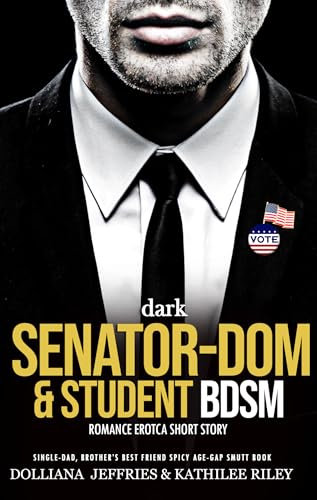
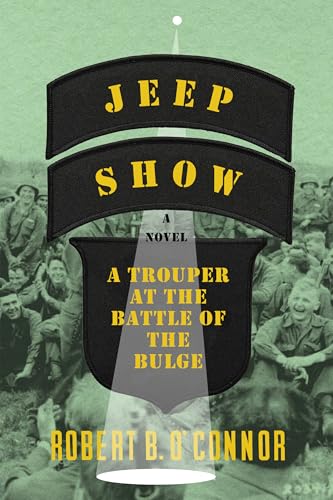
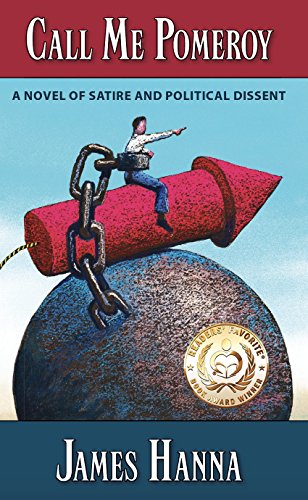




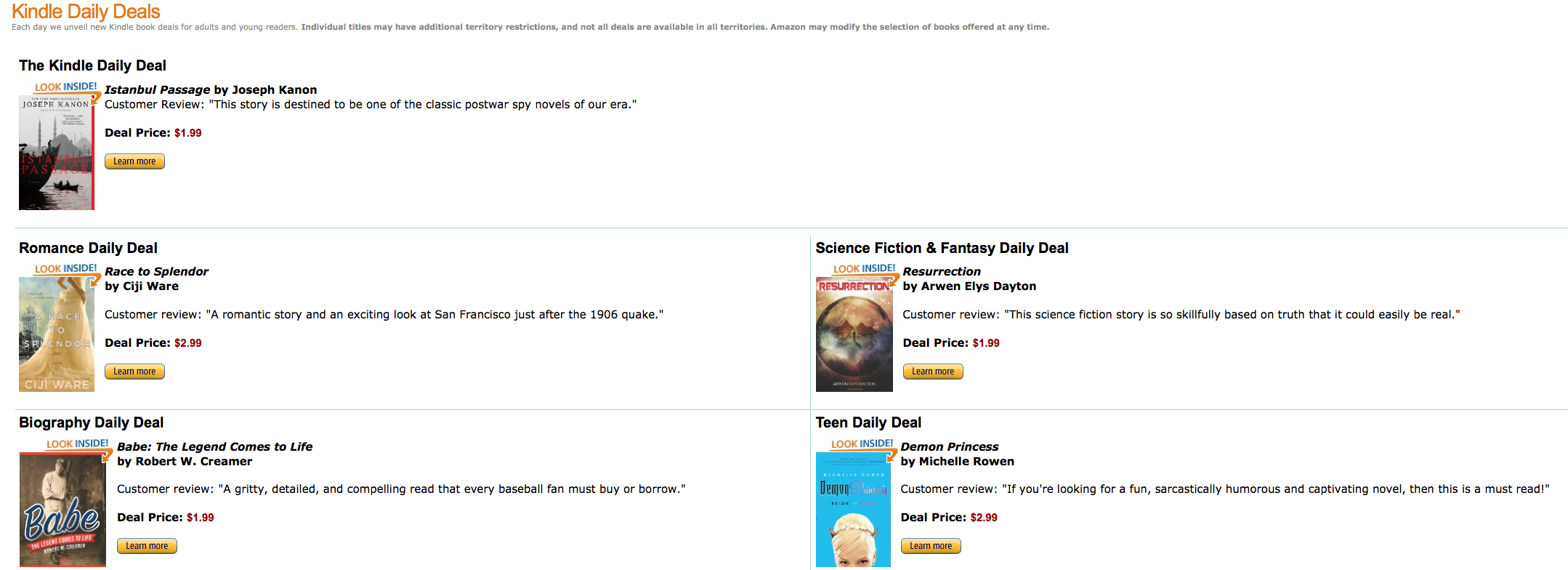





 Thomas Pluck writes hardboiled thrillers and unflinching fiction with heart. His work has appeared in The Utne Reader, Needle: A Magazine of Noir, Burnt Bridge, PANK Magazine, McSweeney's, The Morning News, Beat to a Pulp, and numerous anthologies. He is the editor of Protectors: Stories to Benefit PROTECT.
His story collection STEEL HEART: Ten Tales of Crime and Suspense, is available from all e-book retailers, and his debut novel BLADE OF DISHONOR, an action thriller spanning Shogun-era Japan to World War 2 and the present, will appear in 2013.
You can find him on the web at www.thomaspluck.com and Twitter as @tommysalami
Thomas Pluck writes hardboiled thrillers and unflinching fiction with heart. His work has appeared in The Utne Reader, Needle: A Magazine of Noir, Burnt Bridge, PANK Magazine, McSweeney's, The Morning News, Beat to a Pulp, and numerous anthologies. He is the editor of Protectors: Stories to Benefit PROTECT.
His story collection STEEL HEART: Ten Tales of Crime and Suspense, is available from all e-book retailers, and his debut novel BLADE OF DISHONOR, an action thriller spanning Shogun-era Japan to World War 2 and the present, will appear in 2013.
You can find him on the web at www.thomaspluck.com and Twitter as @tommysalami













